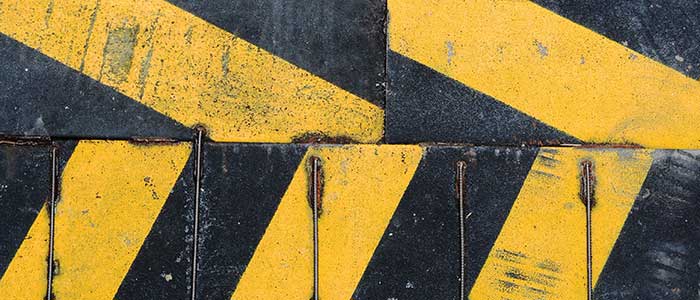Dashpivot article – What does a clerk of works do

What does a Clerk of Works do?
Generally speaking, a clerk of work is a specialist when it comes to monitoring construction works. They ensure that every progress, materials, equipment, and regulatory requirements adheres to the agreed standards. They are essential in the construction industry since they are the eyes and ears of the relevant stakeholders during any project. But what really are the scopes of a clerk of works? Well, here are the core scope of work a clerk of work does.
Inspection Work
One of the primary job of a clerk of works is to do a careful examination via inspection throughout the site. This is the best way to check if the project is sailing in the right course and detect any issues and problems. If any deviation is detected, a solution could be provided right away. Inspections are done based on how frequently the stakeholders want them. On more crucial parts of the project, stakeholders might want a more regular inspection. Here are the main Inspections a clerk of work does:
Daily Site Inspection
The clerk of works conducts regular site visits to monitor the quality and progress of ongoing construction activities. In this inspection, It is their responsibility to ensure that completed work adheres to the approved design and specifications. They also inspect any issues that delay project progression. This diligent oversight provides stakeholders with confidence that the project will be completed in the given time frame and budget.
Regulatory Inspection
It is part of the responsibility of a clerk of works to audit if the project is with in regulatory standards. They will ensure that the project has all the right building compliance and is in accordance to the safety, health and environmental regulations of the region. This ensures that the project has enough safety measures to safeguard the employees, company assets, and the environment.
Quality Control Inspection
A building is only as strong as the quality of the materials used to build it. Knowing this, it is a clerk of work’s duty to ensure that the quality of materials to be used are not substandard. Good quality materials have strong resistance to corrosion, moisture, heat and even seismic activity. This could improve the building's longevity and reduce future expenses in maintenance and reworks. Having good quality materials also improves overall aesthetics of the building, which is quite beneficial for commercial buildings.
Streamlining the Inspection Process
Construction site inspections are a critical component of managing every element of a construction project. Every checklist serves its own purpose and function, from comprehensive construction site safety inspections to quality inspections. It is important for the clerk of works to have a system when it comes tot this.
Using a digital checklist can significantly improve the efficiency, accuracy, and consistency of your Inspection processes. By saving time and effort with predefined fields and sections, the Clerk of Works can quickly input data without starting from scratch each time.
Completing the checklist is also easier and faster than traditional word, excel, PDF docs and paper-based forms. You can access and use the checklist anywhere on a construction site with mobile or tablet - and use and complete the form when online or offline, e.g. in a tunnel or remote area.
Here is an example of a construction inspection checklist
Supervisory Work
A clerk of work is a leader. With his inherent skills and knowledge in construction, he is equipped with great decision-making to resolve issues that arose onsite. They have the charisma to manage the team and lead them to completing a quality project. They will also ensure that the work the team does is aligned with the project's standards and objectives. Here are specific supervisory works that a clerk of work does.
Collaborator of stakeholders
Having a good relationship with stakeholders by doing constant collaboration and good communication can provide great advantages in completing a project. Problems, issues, and grievances can be resolved more promptly - which is very vital when it comes to time - sensitive issues and resource - intensive projects. A good example is a huge, fast moving construction project where delays are expensive. Working closely with stakeholders addresses problems and issues more instantaneously, mitigating potential damage and eliminating delays.
Decision-making Lead
Clerk of works are already equipped with the required skills and knowledge when it comes to construction. These competencies are their primary weapon to analyse situations, formulate solutions, and make sound decisions. Their extensive experience allows them to easily identify a problem, break down the contributing factors and distinguish the root cause. Having known this, it is a known fact that clerk of works are reliable when it comes to decision-making. They can easily manage delays and defects in construction since they are already familiar on how to go about them. Also, always making sure that things are up to quality, really improves their perspective on how decisions are made.
Foremen
Clerk of works are enforcers of quality in the construction field. Part of their responsibility is to make sure that the workforce consistently produces high-quality work. They always check if the final output aligns with the design, specifications, and expectations of stakeholders. Aside from quality assurance, clerk of works also oversee and manage the workforce. One important key in doing this is motivating the team. A healthy, happy and satisfied workforce is more likely to deliver exceptional results. Regular site visits allow them to build familiarity with the team and operations, enabling them to delegate tasks effectively to the most suitable individuals for specific jobs.
Also working as working foremen in the field, clerk of works consistently maintain safety protocols in the construction site. They make sure that the workforce are kept in line in following the rules in safety. They are to conduct safety briefings, inspect equipment and areas for hazard, and provide the adequate measures in any safety concerns that arose. Having this will promote a good safety culture in the construction site.
Reporter
Since the clerk of works obtains a lot of information in the field, it is also their duty to report this information. A clerk of works report is a series of documents produced that details the observations, findings, and recommendations made during their inspections of a construction project. The report is usually prepared for the client or the client's representative to keep them informed about the progress, quality, and any issues related to the construction. The frequency of reports is based on how regularly the stakeholders want them. This could depend on the crucial phases of the project. The more intricate and expensive the project phase, the more frequent reports are demanded.
Streamlining the Work flow Process
Having those roles mentioned above, a clerk of works needs to keep an organised system to have balance and keep things efficient at the same time. Finding a good workflow system also increases productivity, allowing clerk of works to finish tasks much faster. However, this could get messy when using the traditional pen and paper.
Fortunately, with Dashpivot you could create automated workflows with custom notification and digital internal and external sign-off control, so nothing gets missed and all of your important data and evidence lives on the same forms in the same place
Every document is mobile optimised for accessibility and completion on tablet or phone - when online and offline - and can be instantly formatted in list or register view for ease-of-use and sharing.
File Management Work
A vital job that a clerk of works needs to do is manage and organise files retained from the project. These are placed in a centralised location, which simplifies the process when one tries to access them. This also provides control on who can access the files, keeping confidential records safe. Keeping a record of the files improves efficiency in an organisation, since it can reduce mistakes and enhance productivity. Here are some important file management work that a clerk of works does.
Reviewing Plans and Projects
No plan is flawless so to continue to deliver successful projects, it is an essential step for clerk of works to study accomplished projects to gain insights and have a better perspective with upcoming projects. When reviewing plans and projects, a clerk of works will take a look at delayed phases on the project, and try to formulate new processes to eliminate such delays in the future. This could also be a good basis for future decision-making when faced with the same adversity. The clerks of works also makes a budget review. They will make an assessment of previous projects and see if there are any improvements they can make and budgets they can cut off to further refine budget decisions. Lastly, a clerk of works should evaluate safety protocols and make sure that their effectivity are satisfactory to standards. Any safety protocol that are found ineffective should be addressed so that safe working conditions are solidified.
Survey Evaluation
A survey improves construction procedures. The data that clerk of works collect from relevant stakeholders and workers can further improve construction processes in the future. These valuable data will be the basis for strategic decisions and improved programs for the next project. This also measures the client satisfaction on recently completed projects, further solidifying an organisations' credibility.

Non-conformance report (NCR) template
Document those painful non conformances with this powerful template.

Inspection and Test Plan (ITP) template
No one plans to fail, they fail to plan. Ensure your projects are a success with this ITP.

Snag List template
Don't let snags get in the way of project completion.